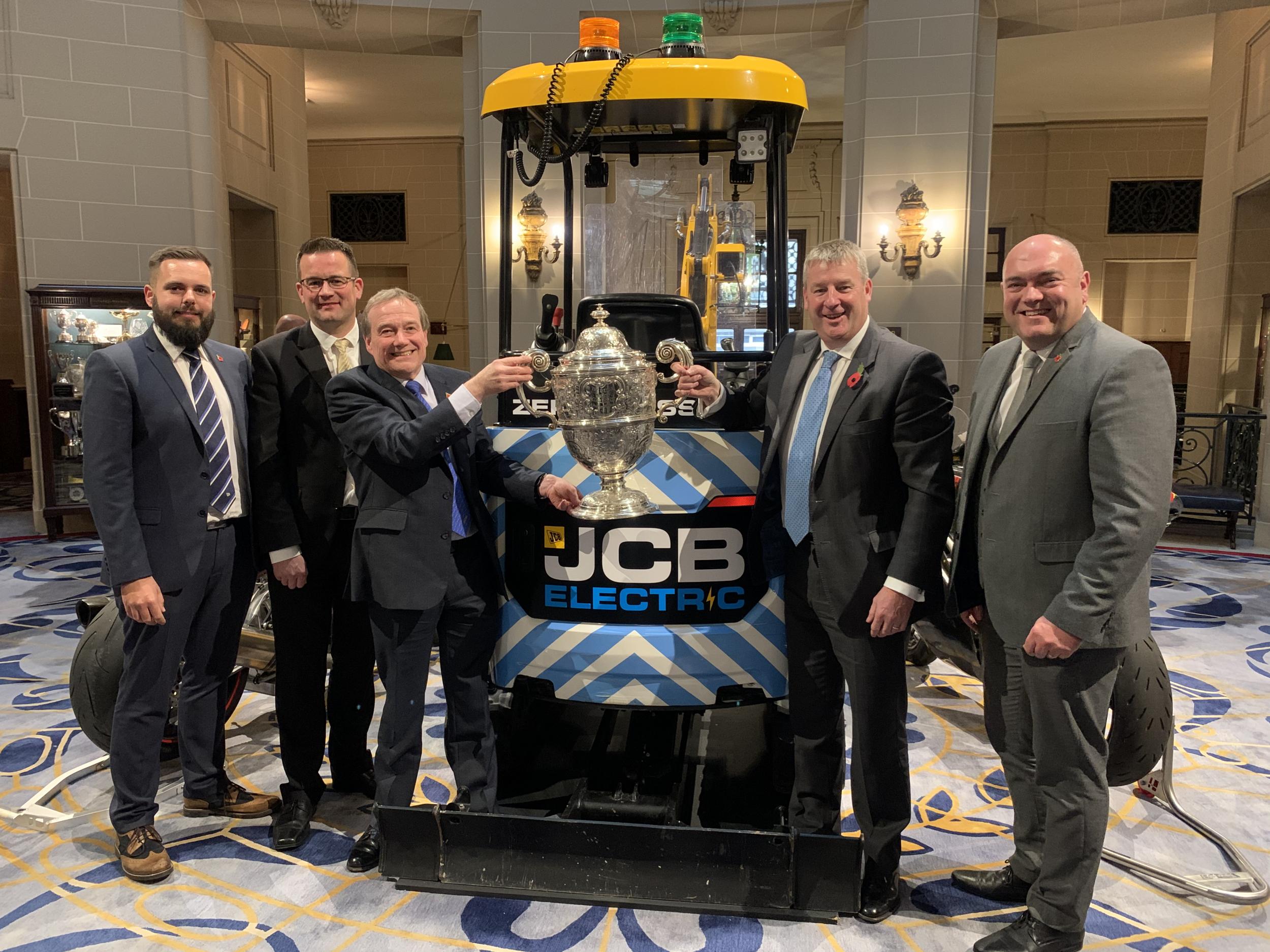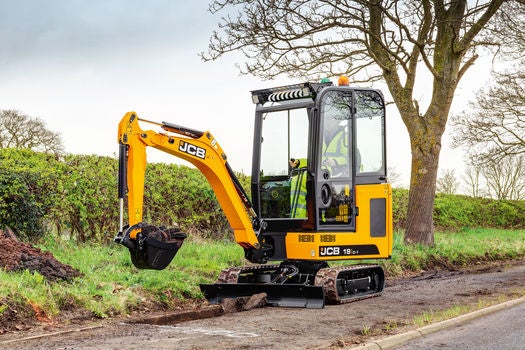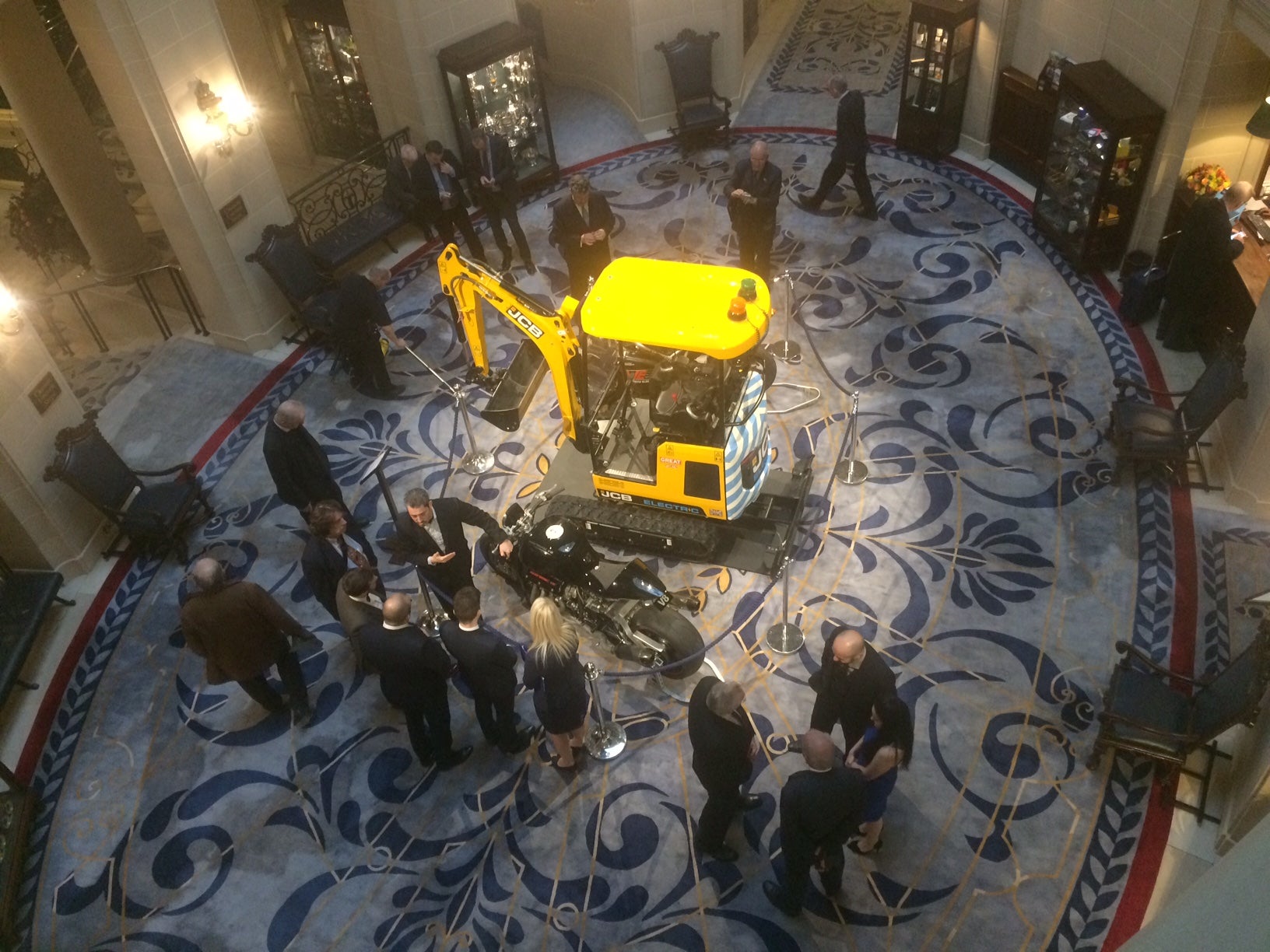Digging deep to tackle climate change: JCB’s quiet revolution
The world’s first fully electric compact digger has come up trumps with a prestigious award from the RAC, writes Sean O’Grady

Your support helps us to tell the story
This election is still a dead heat, according to most polls. In a fight with such wafer-thin margins, we need reporters on the ground talking to the people Trump and Harris are courting. Your support allows us to keep sending journalists to the story.
The Independent is trusted by 27 million Americans from across the entire political spectrum every month. Unlike many other quality news outlets, we choose not to lock you out of our reporting and analysis with paywalls. But quality journalism must still be paid for.
Help us keep bring these critical stories to light. Your support makes all the difference.
In a novel move, and a sign of changing times, the prestigious RAC Dewar trophy has been awarded to a one-ton digger. It is the first time in its 113-year history that the award for “Outstanding Technical Achievement in the British Automotive Industry” has been awarded to anything like this, but then the digger in question is no ordinary piece of construction kit.
Now in production at the company’s Staffordshire plant, and with around 200 sales already achieved, the prosaically named JCB 19C-1E electric mini excavator represents a breakthrough for the company and for combating emissions and climate change. For this JCB is the construction industry’s first fully electric mini excavator – there is no internal combustion engine, even in “hybrid” partnership with the electric motor. This JCB is powered purely by lithium-ion batteries, of the same type used in the Nissan Leaf all-electric car. A key requirement for winning the prize is that the product or innovation should be fully commercially available, and the electric JCB is just that, representing about a 10 per cent market share in the compact digger market.

The trophy was accepted on behalf of JCB by its director of advanced engineering, Bob Womersley, who described it as the culmination of a “10-year journey” towards the electrification of JCB’s production. Mr Womersley was enthusiastic about the mini-excavator’s ability to work in confined spaces, especially indoors, and around places such as schools, hospitals and cemeteries where silence as well as low emissions are essential. Indeed JCB offer an electric “Gravemaster” model, which is, according to witty insiders, “dead quiet”. He added that the order book for the digger is full, and that it is being used from Norway to the Middle East, and has been well-received by users everywhere, as it “surprises and delights”.
The reduction in vibration and harshness when electric power replaces diesel is especially welcome, and Mr Womersley is confident that the mini digger can work a full shift and be recharged if needs be rapidly form a special mobile power pack. For reasons of health and safety, the JCB cannot be run from a mains power supply, so there is no “plug-in” option available. The electric digger commands a 50 per cent price premium over the usual diesel version, but for many users constrained by the nature of their work, they have little option but to go electric.
Ever more demanding CO2 reduction targets and “bans” on diesel and petrol motive power are pushing users and firms such as JCB towards the electrification of their plant, which have previously invariably run on diesel – with inevitable consequences for air purity. Paris, London and Copenhagen are just three cities that are pressing ever more ambitious goals for carbon neutrality, and will likely be moving towards mandating electric power for roadworks and smaller construction projects.
John Wood MBE, chairman of the Royal Automobile Club’s Dewar Technical Committee, said: “Awarding the 2019 trophy to JCB was a unanimous decision. The JCB 19C-1E is unique in the application of electric powertrain technology in the mini excavator market. As one would expect from a company like JCB, it has come about as a result of a thoroughly well thought-out and properly executed development process based on a clear appreciation of the market needs, usage profiles and the particular advantages that the emerging technology can offer. It represents a bold commitment to the introduction of novel technology in the off-road sector”.

JCB chairman Lord Bamford added: “I’m absolutely delighted that JCB has been presented with such a prestigious award. JCB is a company built on innovation and for our latest innovation, our electric mini excavator, to be recognised in this way is tremendous for the company and the team who have developed it. It’s also a great honour to join such an elite roll of past Dewar recipients including Mercedes-AMG, McLaren Automotive, Jaguar, Ford, Ricardo and GKN.”
This is the second time that JCB has won the Dewar Trophy, having been presented with the award in 2007 for its outstanding achievement in breaking the world diesel land speed record with the JCB Dieselmax car powered by two JCB engines. Driven by Wing Commander Andy Green, the car reached a speed of 350.092mph on the Bonneville Salt Flats in Utah, USA. The record still stands today.
Subscribe to Independent Premium to bookmark this article
Want to bookmark your favourite articles and stories to read or reference later? Start your Independent Premium subscription today.
Join our commenting forum
Join thought-provoking conversations, follow other Independent readers and see their replies
Comments